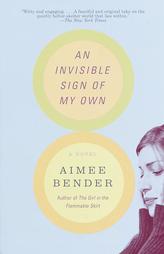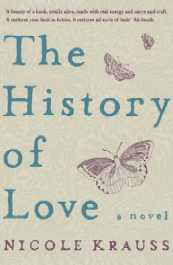Ex Libris: L is Literary
I must admit that I don't have much inclination for literary works. Rather, I judge a book on my own terms: good story, excellent prose, in-depth characters. The fact is, if even just one of the factors I mentioned is good then I could consider reading the book as worthwhile.
Of course an initial impression of my reading list may give the idea that I prefer genre than literary works. I don't deny this; in fact, I admit I prefer reading speculative fiction (i.e. fantasy, horror, science-fiction in that order) as opposed to mainstream or contemporary fiction. However, I can honestly say that I read whatever interests me when I pick it up and read the back cover-- whether this be fiction or non-fiction, genre or literary, speculative or contemporary. That's the kicker there: the book has to interest me at the very least.
So: given the number of books out there, I rely heavily on recommendations when checking out other books. In this case, I picked up Aimee Bender's An Invisible Sign of My Own because of heavy backing from one of my favorite writers, Kelly Link, while my father lent me Nicole Krauss's The History of Love after I gifted him with Carlos Ruis Zafon's Shadow of the Wind.
Unfortunately, despite my best intentions, I could not for the life of me get into Bender's writing. I first discovered her via the Michael Chabon-edited McSweeney anthology (#10), Mammoth Treasury of Thrilling Tales, "The Case of the Salt and Pepper Shakers." At that time, I thought it was an interesting character tale but spartan-like in its prose. Alas, I soon found out that this was par for the course when I started reading her first novel, An Invisible Sign of My Own.
Here, a rather dysfunctional young woman Mona Gray lives a strangled life: she quits anything she can or would possibly enjoy like playing the piano, running, and even loving someone. Blame it on her father, who suffered from a mysterious ailment and completely withdrew from the world. Her only enjoyment left is numbers, so when she is recruited to teach mathematics to kids, she discovers a new calling. Unfortunately, she finds new complications to her simplified life as she deals with a little girl with her own emotional baggage and a science teacher who's as dysfunctional as she is.
Unfortunately, Bender's main protagonist is hard to like as she deals with her fears by knocking on wood endlessly and eating soap as an anti-aphrodisiac. This plus the episodic nature of the story and prose that left me cold made reading each chapter a torturous progress. It got so bad that I literally stopped reading it several chapters down the road. As a bibliophile who tries to finish even a bad book out of plain respect, this was one of the few times I've ever done this.
Up to now I have to wonder why the comparisons between Bender and Link as the two-- in my mind-- seem totally different from each other as night and day.
On the other hand, I had no clue when I first started The History of Love what I was getting into. My father's declaration that Zafon's book, Shadow of the Wind, reminded him of Krauss wasn't helpful either as I hadn't read Zafon's work yet. (Unfortunately, I have to get my own copy first!)
This is a complicated tale: sixty years ago, Leon Gursky fled his ravaged hometown in Poland with Nazi soldiers on his heels. Now an old man and living alone in a small New York apartment, he spends his time silently calling attention to himself in coffee shops and supermarkets because he is afraid he will die and no one would notice. On the other side of the coin is a fourteen-year old girl, Alma Singer, who is trying to find ways to pull her mother out of her depression and deal with her own grief about her dead father.
There are other characters and plot strands but the tale centers itself on these two and a book called The History of Love, whose connection between Gursky and Singer may seem tenuous but is actually deceptively strong. How Krauss ties up these two strands and a number of others as well is a marvel in storytelling. Likewise, in comparison to Bender's Mona Gray, Krauss' characters are off-beat without being depressingly boring. I suppose it's the wry humour of Krauss' characters that saves them from being taken too seriously.
But if there's one thing I really like about this book, it's Krauss' prose. The writing of The History of Love has a magical touch: tender and touching and yet also funny and quirky at the same time. Take this unoffficial obituary of one of the characters: "He fell in love. It was his life." Simple, yet effective.
To end, if you were to ask me how much would I recommend this book, I'd say: once I have money, I'll buy a copy for myself. It's that easy to answer.
*On a side note, I found out Krauss is actually the wife of noted literary writer Jonathan Safran Foer.
**On another side note, Gwenda Bond wrote a pretty good article on the slew of books that can be considered literary fantasy.


No comments:
Post a Comment